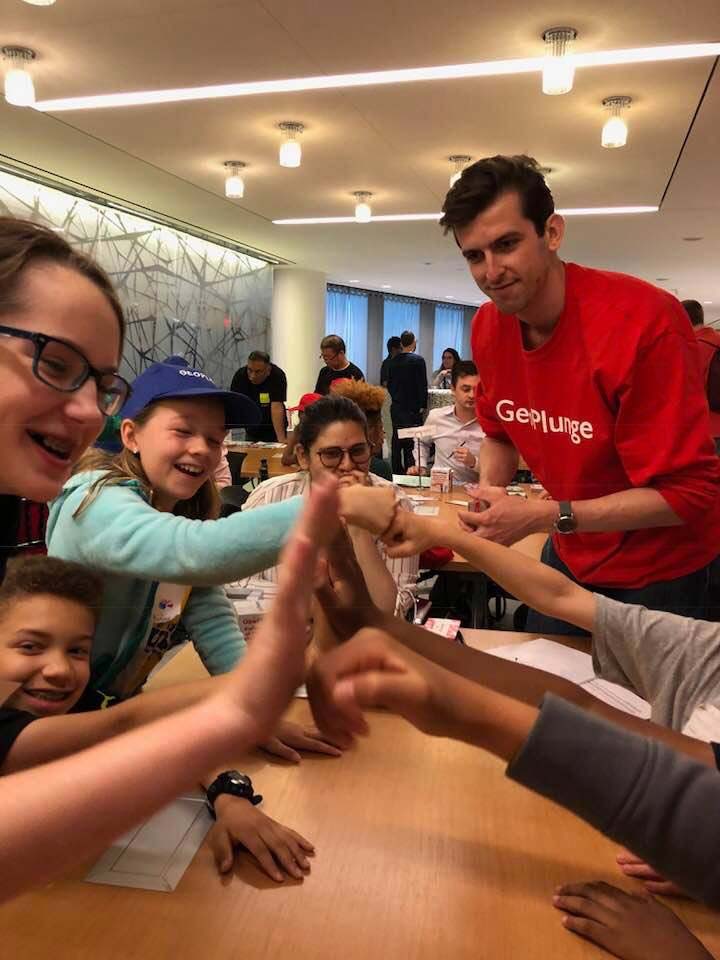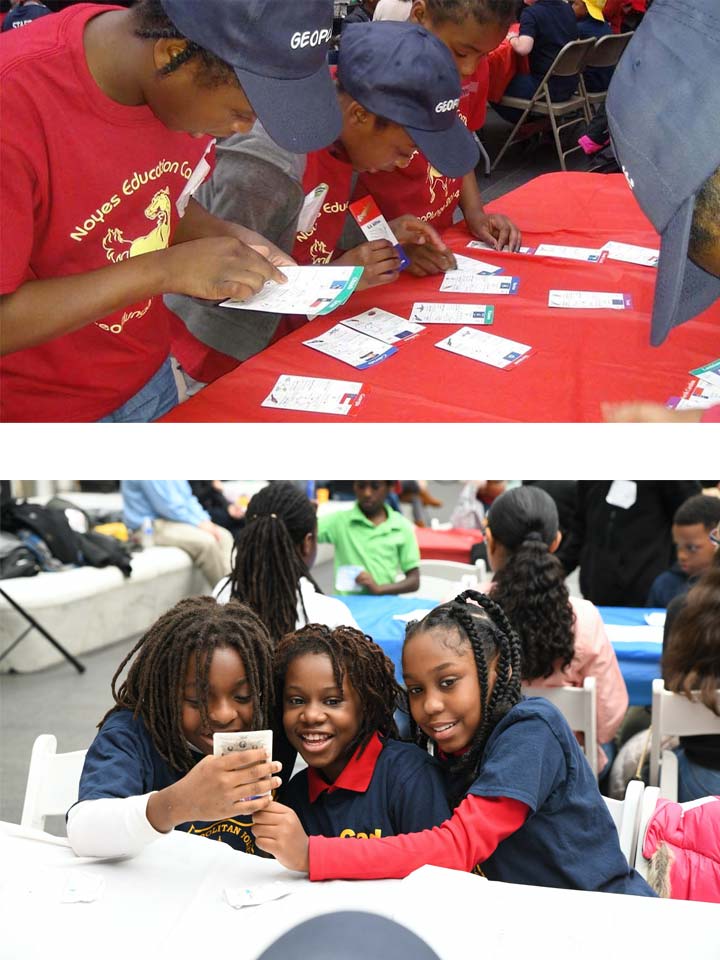What is LearningPlunge?
LearningPlunge is a non-profit organization committed to making education work not just for some — but for everyone!
Fifteen years ago, we developed the U.S. geography game GeoPlunge and started organizing multi-school tournaments in the Washington, D.C. area focusing on underserved communities. Since then, thousands of students have participated in those tournaments and in GeoPlunge school enrichment programs. Hundreds of community volunteers, many organized through our collaboration with the Washington Lawyers’ Committees Education Project, have worked with students at the school level and have staffed our two yearly GeoPlunge tournaments.
Other cities have jumped on the bandwagon with tournaments held in places such as Denver, St. Louis and New York.
In 2019, LearningPlunge launched its second game, HistoryPlunge created in collaboration with the Smithsonian’s National Portrait Gallery. The first multi-school tournament was held in the fall of 2019 at the D.C. Court of Appeals with a second tournament held at the National Portrait Gallery.
Both GeoPlunge and HistoryPlunge are designed with families in mind. Our goal in designing the games was to make them fun for adults and children alike so that families would want to learn and play together.
WHAT IS GEOPLUNGE®?
Each GeoPlunge set consists of 5 decks of geography-related cards that:
- Teach over 1,500 facts about the United States,
- Challenge children to think strategically for improved critical thinking skills,
- Teach students to communicate effectively with teammates,
- Emphasize collaborative and experiential learning.
Our GeoPlunge digital app available through Google Play or the Apple Store can help students improve their geo-literacy.
WHAT IS HISTORYPLUNGE®?
Each HistoryPlunge box consists of 7 decks consisting of 615 U.S. history-related cards that may be used in a variety of ways to play games that:
- Teach over 4,000 facts about United States history from 1492 – Present
- Develop higher level critical and creative thinking skills such as visualization as players identify portraits of all Presidents and notable people in U.S. history
- Challenge players to think fluently and flexibly as they sort historical events
- Develop social-emotional learning through collaborative and experiential learning
And best of all, BOTH GAMES ARE FUN and foster the love of learning!

City-wide tournaments bring together a community of players for fast-paced, fun competition.
Tournaments bring together students from various schools, teachers, mentors, parents, siblings, and volunteers from area businesses as the players compete for awards in achievement, sportsmanship, and teamwork.
Wherever you are located, we invite you to join us at our tournaments in Washington, D.C. or create your own intra-school or larger tournament. Multi-school tournaments have also taken place in St. Louis and other cities. We have a tool-kit to get you started and we’re here to help.

Thousands of students have participated in our programming at school and at home.
Game-based learning has many valuable benefits:
- Active learning
- Collaborative learning
- Student centered learning
- Social-emotional growth (teamwork, communication skills, leadership, self-awareness, decision-making)
- Low risk competition
Our mentors (teachers, school librarians, academic specialists, and community volunteers) have used our model in the classroom or as an after school program for over a decade. Consistent feedback has shown that the games motivate students to learn, even those who were not necessarily interested in school before. In addition to improving content knowledge, participating students have increased confidence, self-esteem, plus developed preparation skills and study habits that have carried over to other subjects.
